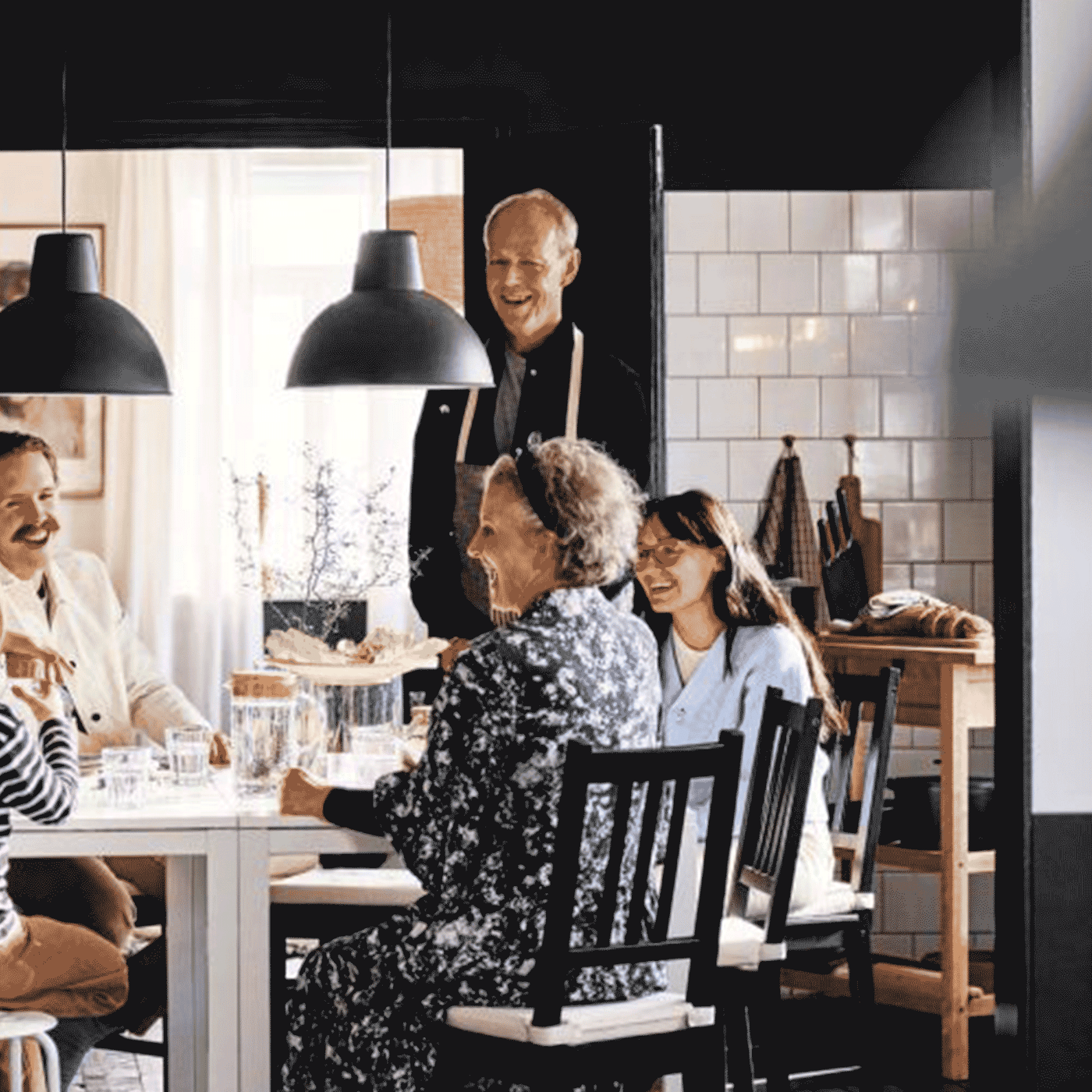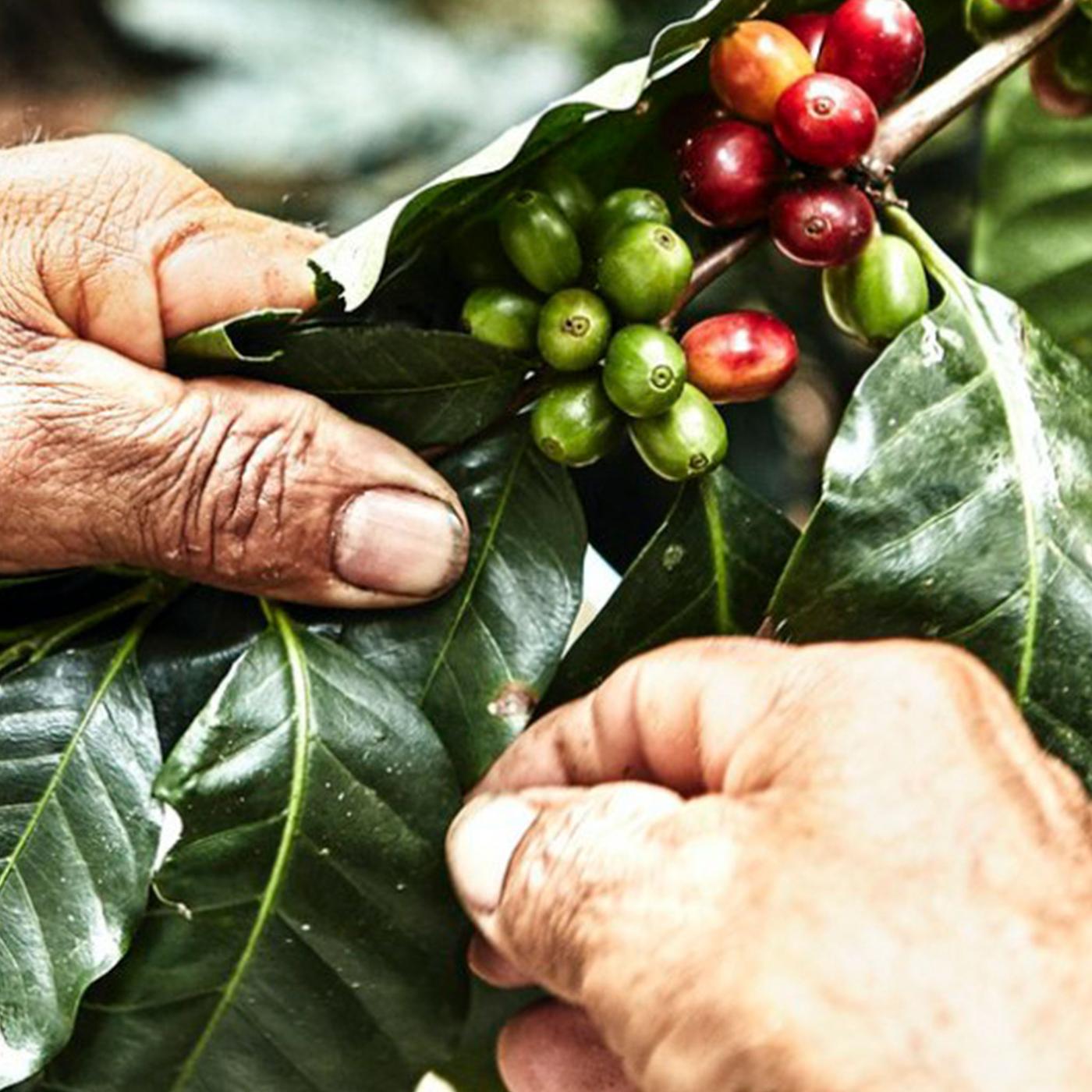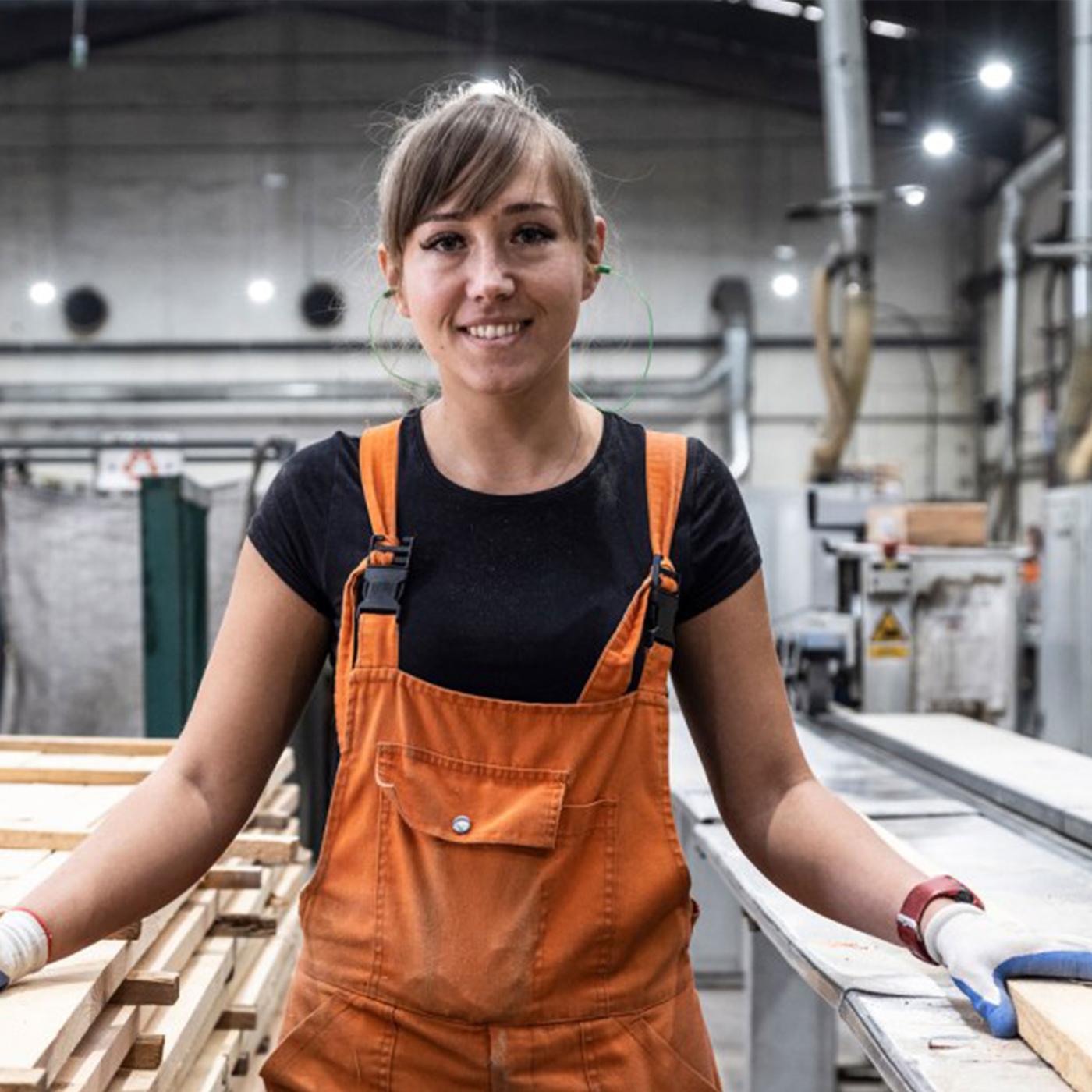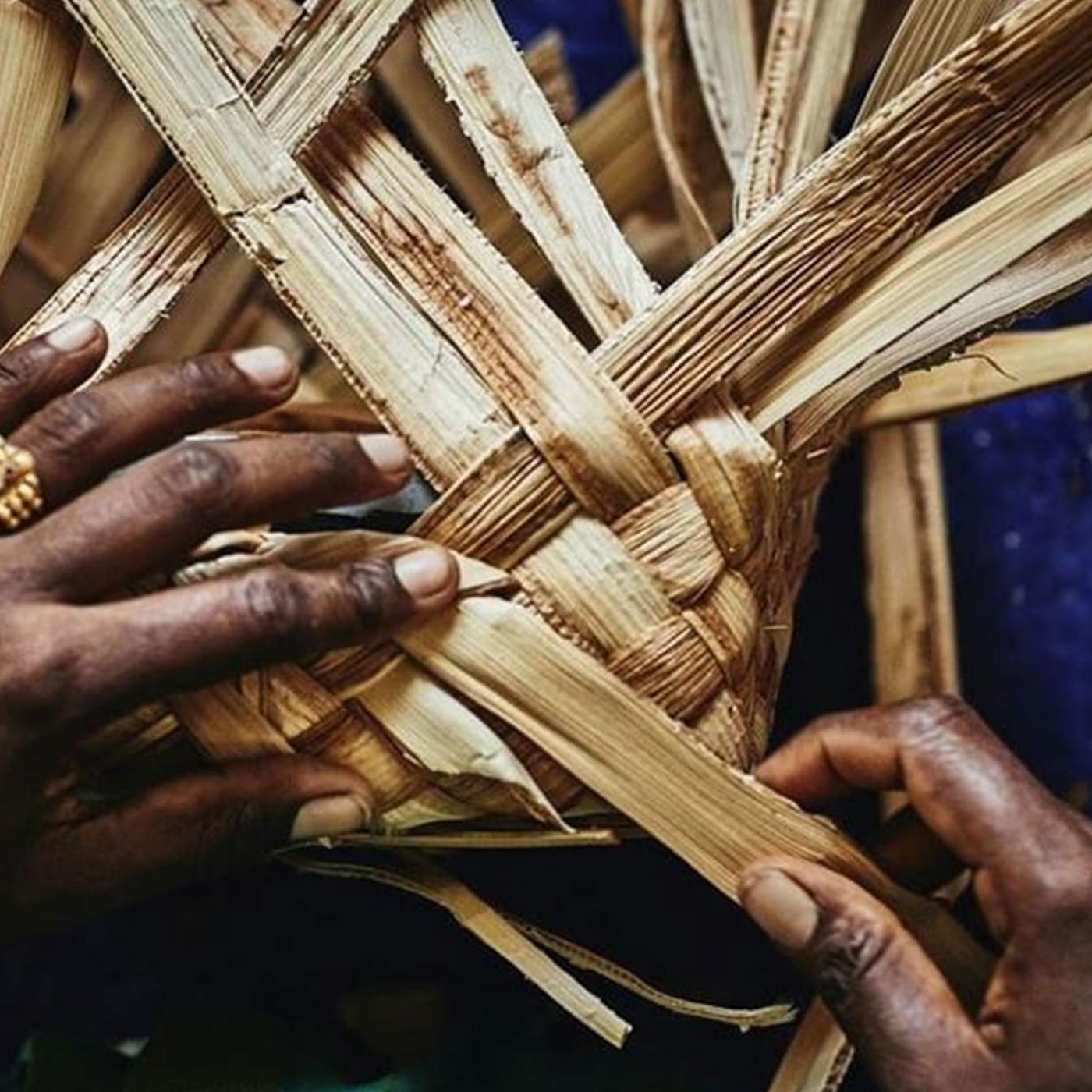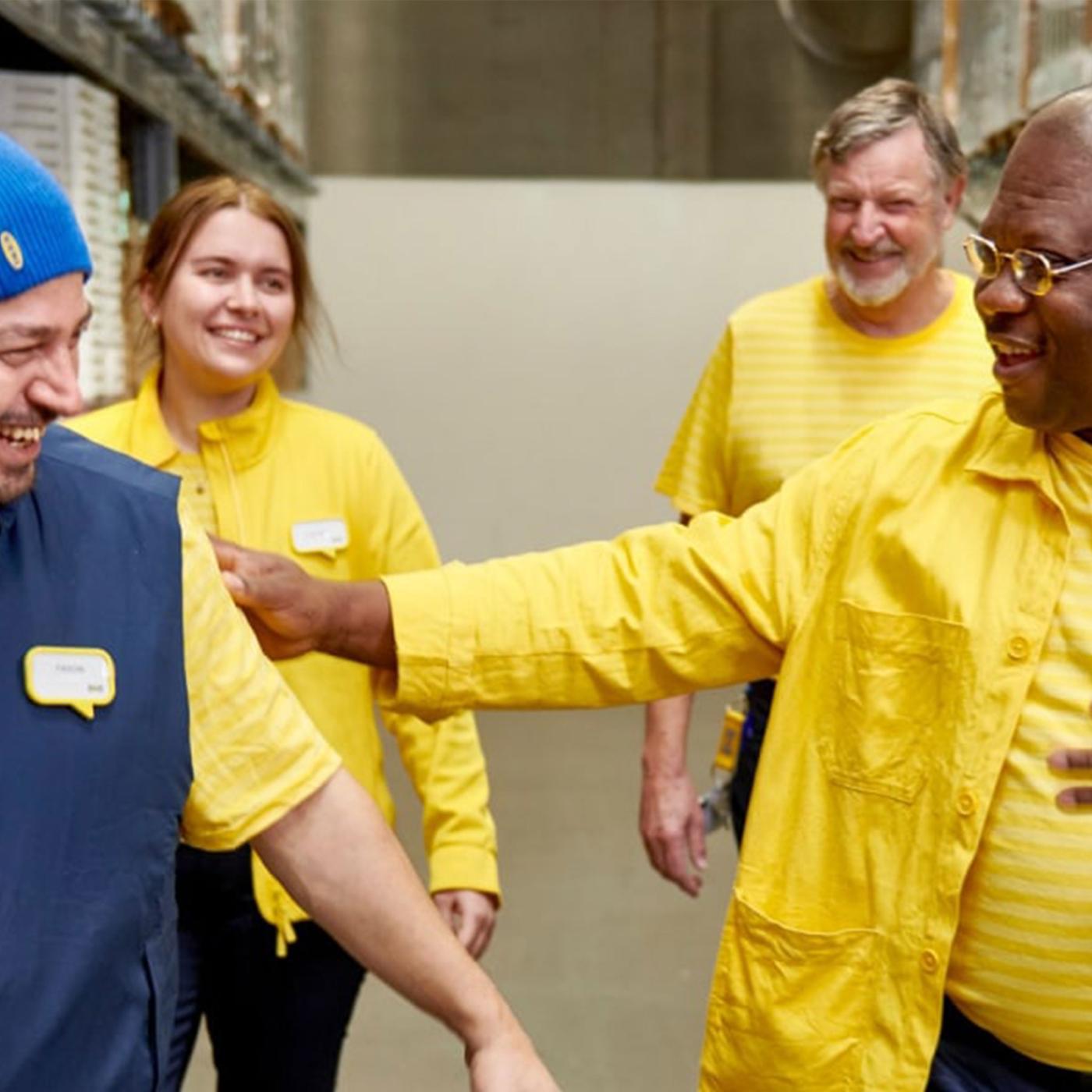IKEA on human rights and good working conditions
People are central to everything IKEA does.
IKEA wants to take a leading role in creating a fairer and more equal society, and improving the lives of the millions of people with whom we interact, or who are affected by our company. By 2030, our ambition is to improve the everyday lives of millions of people by having a positive social impact on everyone in the IKEA value chain
IKEA is committed to promoting and supporting a world where human rights are a reality for everyone. Respect for basic human rights and decent working conditions are core values in our business, and are integrated into our strategies, guidelines and processes. Respect for human rights applies to everyone our business touches.We know that everything we do affects people and the environment and therefore we work, in all countries worldwide, with a set of ethical policy called IWAY - "the IKEA Way". The guidelines are about the way we buy products, materials and services and apply to all suppliers and service providers in our value chain. IWAY is based, among other things, on the International Labour Organisation (ILO) and the UN's human rights declaration, on current legislation and on IKEA value.
IKEA and all our subcontractors must follow our ethical policy IWAY, which covers both safety aspects, labour rights, animal welfare and environmental protection. We carry out inspections through IWAY with our suppliers in Norway.
We are proud of these guidelines, which we know help us to make good choices for people and the environment so that every day we really work to create a better everyday life for the many people. In order to be open about how we work, an annual report on progress and challenges in our sustainability report. Annually, we share how we follow up IWAY.Our vision to create a better everyday life for the many people includes both employees, customers, suppliers and local communities. It is not limited to employees you meet in the warehouses, but also those who work at our suppliers.
We have a number of global, internal and external policy and procedures in place to ensure basic human rights and decent working conditions for IKEA's employees and everyone connected to IKEA's value chain. This includes, among other things IKEA's policy for human rights , anti-corruption and bribery , IKEA's sustainability strategy , IKEA's ethical policy , and IWAY.
IKEA has integrated basic human rights and demands for decent working conditions into our long-term business priorities, our strategies for sustainability and internal policy through close cooperation with our suppliers.Together, these guidelines describe IKEA's attitude and obligations to follow up on human rights and ensure decent working conditions for everyone who works at IKEA and who is connected to IKEA's value chain.
IKEA undertakes to respect and support human rights throughout the value chain, and everyone who works in or for IKEA must have decent working conditions. Human rights are an integral part of our long-term strategies and business plans, and we work closely with our suppliers through our ethical guidelines, IWAY.
The guidelines cover both human rights, safety aspects, the right to decent working conditions, animal welfare and environmental protection and are based, among other things, on the UN's guiding principles for business and human rights, the UN's Global Compact, the UN's sustainability goals, the ILO conventions and more. We work closely with others to uncover and understand our areas of risk and how the world around us is affected, and we always try to be open and strengthen the way we working with due diligence assessments, to reduce any consequences of our operations. This work is an ongoing process, and we continuously strive to improve.The IKEA vision is to create a better everyday life for the many people We are passionate about life at home and love to bring inspiring, affordable and sustainable home decor to people with big dreams and thin wallets. No matter what we do today, we can do it better tomorrow. From flat packs to plant bowls, we are constantly looking to innovate and improve, to find new and better ways to move forward. This is more important than ever.
So what does "better" mean to us?
It means making it possible for even more people to create a better life for themselves at home, by making a healthy and sustainable life affordable for the many, not just the few. It means being a fair, inclusive value-based company that creates positive change for the home we all share. When we care for people and the planet, we can make a significant and lasting change - today and for generations to come.
We take big steps in the entire business to achieve our goals and we work with this throughout the value chain. In addition, we have a great focus on how we use resources. Using resources efficiently has always been part of how we work at IKEA. We know that our size gives us a great responsibility – and a great opportunity – to make a difference. It is a responsibility we gladly take on.
Read more about how we set goals and evaluate our achievements on INGKA group's websites here.
The Transparency Act
FAQ
Tackling societal challenges, such as climate change and inequality, is fundamental to IKEA vision. We recognise that a long-term approach to meaningful partner engagement and built-in processes to identify and minimise risks is critical to IKEA's long-term success. People & Planet Positive, IKEA's sustainability strategy, includes fair and equal treatment of people and protection of the environment at its core. The strategy covers IKEA's entire value chain and franchise system. Our ambition is that by 2030 the IKEA business will be a leader when it comes to creating a positive social impact for everyone throughout IKEA's value chain, and contribute to creating a fairer and more equal society.
Read more about how we work for human rights and decent working conditions, as well as about our sustainability strategy here .IWAY Code of Conduct for suppliers: Globally, IKEA works continuously to protect the safety and rights of the people who work in our supply chain through close cooperation and dialogue with our suppliers with IWAY, IKEA's way of purchasing products, services, materials and components, as the basis. IWAY is based on the eight core conventions from the International Labour Organisation. It also refers to the guidance in the ten principles of the UN Global Compact and demonstrates its commitment to the basic human rights principles recognised in the Universal Declaration of Human Rights. Our IWAY verification process relies on both internal and external auditors to verify compliance, as well as the IWAY development team to ensure continuous improvement. The latest version (6.0) of IWAY was launched on 1 September 2020.
Read more about IWAY here .A large part of achieving IKEA's sustainability goals is about collaborating with others. It is important to develop strong and meaningful relationships. When we work together, we can drive and support change, learn and inspire each other and find the best solutions. Here are two examples of collaboration we do today:
Credible and transparent sustainability standards
IKEA has collaborated with ISEAL Alliance for over 10 years. This has helped us make IWAY, our supplier's policy of conduct, more solid and reliable over time. The ISEAL Alliance sets the minimum requirements for which sustainability frameworks must be met, and "ISEAL members" who comply with the requirements are among the more credible sustainability standards currently available in the world. Examples of standards that IKEA uses today are certification schemes such as the Forest Stewardship Council (FSC), Better Cotton Initiative (BCI), FairTrade, Rainforest Alliance, Aquaculture Stewardship Council (ASC) and Marine Stewardship Council (MSC).
In FY21, Inter IKEA Group was a member of the steering group for the audit of ISEAL Credibility Principles , and was also a member of the Technical Committee and ISEAL's Stakeholder Council.The International Organisation for Migration (IOM)
Since 1951 IOM (IRIS Ethical Recruitment (iom.int)) the leading intergovernmental organisation on migration has worked closely with state, intergovernmental and non-state partners. IOM has long been a partner of IKEA - and supported us in developing our approach to the ethical recruitment of immigrants.
During FY21, IOM continued to develop the International Recruitment Integrity System (IRIS), a voluntary certification process for international recruitment, where Inter IKEA Group is a member of the advisory committee and supports the overall development and implementation of IRIS.
Read more about our interest engagement and other collaborations here.Many companies around the world operate under the IKEA brand. Ingka Group (Ingka Holding BV and related companies) is one of IKEA's twelve franchisees who operate IKEA stores under franchise agreements with Inter IKEA Systems BV, the owner of the IKEA concept and the global franchisor of IKEA.
IKEA Supply AG (part of the Inter IKEA Group) has eight purchasing and logistics areas (PLAs) spread around the world, with responsibility for developing and managing business units (suppliers) in the area. Among other areas of responsibility, the PLAs ensure that we comply with laws and standards, and verify compliance with quality and sustainability on site at suppliers.
Read more about how IKEA is organised here .
Contact
If you would like information about how IKEA working to ensure basic human rights and decent working conditions for IKEA employees and everyone connected to IKEA's value chain, you can contact us by email at any time. We will reply to you no later than 3 weeks after you have made contact. Send the request to: [email protected]
If the media have questions, please contact the press centre. You can find an email address of the press centre here.
IKEA's due diligence report is published on our website in June 2023.
